Read next
The latest news, updates and expert views for ambitious, high-achieving and purpose-driven homeowners and property entrepreneurs.

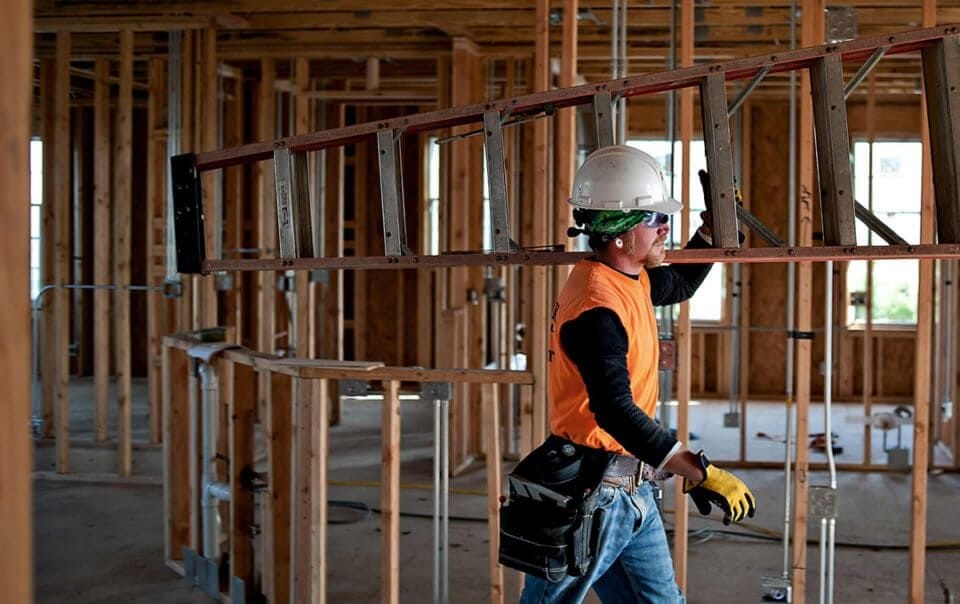
Few decisions you ever make can affect your finances as much as hiring a builder. Seriously, how can you make sure you are finding and hiring the right builder for your project?
Well, the secret could be asking the right questions to builders you are planning to recruit. But, what to ask a builder when getting a quote?
In today’s article, we are going to walk you through all of the essential aspects you should look into when you are hiring a builder in the UK, so you know that you are getting a safe, reliable builder to work with you through your construction process.
You will learn about the most important questions to ask when you set out to find and hire a good builder. Follow these easy steps to make sure that the building company you choose is the right one to carry out your construction safely, professionally, on budget, on time, and deliver the results you deserve.
So let’s start with the first question...
To begin with, some builders are registered as limited companies. Have you wondered why?
This means that there is an element of separation between them as businesses and them as individuals. It works to protect and legitimise the builder and any dealings you do with them.
Good news: It also makes it easier to check on their past work. You should ask for confirmation that no claims have been made against the company in the last five years, so you know that they’ve got a good track record and can be trusted. Make no mistake about it.
Quite simply, trade associations are groups for people of particular professions. It’s a good way to share new information about practices, policies and other things specific to that industry.
Needless to say, you should ask your prospective builder if they’re a member of a trade association, find out which one, and then confirm this with the trade association to make sure they’re active members.
A lot of people don’t know much about the building industry, so checking with experts is a good idea and a great way to ensure that they’ve got up-to-date knowledge and good experience.
Want to know more about how to make sure you will not appoint a cowboy builder?
Keep reading...
You might look at this and think that you won’t need a gas engineer because you’re not having any gas work done, or you won’t need an electrician because you’re not having any re-wiring. Sounds familiar?
In fact, it’s actually still a good idea to ask this question when hiring a builder, because contractors often come across unexpected things when working on buildings, and easy access to an expert is a great way to make sure that any potential issues are managed. Let me say this straight
Let me say this straight: You should ask your builder about all the members of their team, including the engineers they have in-house, and make sure that they’re all members of approved trader schemes and just generally reliable, trustworthy people. You’re about to give them a lot of money and access, and you can’t do that if you don’t trust them.
We’ve already said that you should meet the team before you hire anyone, but the site manager is definitely a priority. You should see how they manage and communicate with your architects during the construction work, and how they interact with you. Why is this so?
The site manager will be overseeing your building works, so they should have an overall understanding of how construction management works, and be able to run everything smoothly, effectively, on budget and on time.
Put it this way: The site manager should also be the kind of person you trust in an emergency, in case anything does go wrong.
In general, depending on the size of the company, it’s not always possible to know everyone who works for/with your builder. However, it’s a good idea to have some idea of how many people they have on payroll and who they work directly with, including the technical and support staff.
Ever wondered why?
Reality is, these people will usually work in administrative capacities in the builder’s office, so you might not see them face-to-face every day, but knowing who to contact for paperwork, queries and invoicing is crucial.
Here’s a clue: You can ask for their CVs (like the on site team), if you like. Otherwise, an understanding of who they are and what they do should be fine. You should also have their contact numbers or email addresses in case you need to get in touch with them.
We want everything to go smoothly and well. What could be more important?
Asking the questions laid out here is a good place to start! But it’s also important to have some backup in the form of a written guarantee that will be honoured by a UK-based insurance company. That way, if the company stops trading for whatever reason, you will be protected.
Again, be cautious and if you’re concerned that your builder won’t be able to do the job, see if you can find someone else. But an insurance-honoured guarantee is an essential backup, too.
In a nutshell: If you want to avoid cowboy builders and lower the chances of any headaches and extra costs along the way, we recommend hiring your architect to act as your contract administrator and construction inspector.
This means that your architect will carry regular site visits and continuously monitor your construction to make sure that the building works meet your needs and aspirations.
There’s nothing wrong with hiring a new builder, and there’s no guarantee that people who’ve been in the business for years will be great. However, if someone’s new to the job or company, it’s a good idea to make sure the rest of the team is more experienced and that there’s a backup in case things do go wrong.
For instance, you can also ask them if they’ve worked on buildings like yours before, to make sure that they’ve got relevant knowledge. Again, ideally they’ll have done similar projects before but if they haven’t, at least make sure that someone on the team knows what to do. You should also ask to see a portfolio of previous work - but we’ll talk about that later.
Sometimes, companies fail - we all know that. Debts build up, the economy doesn’t grow, or any one of a million other factors can mean that companies need to be dissolved.
If you discover that the director of the company you’re looking to hire has dissolved in the past, it’s not the end of the world, but you should investigate.
Did they leave work unfinished, or take money from customers and vanish?
Were there lengthy and difficult legal battles?
But the silver lining is that previously dissolved companies aren’t automatically a red flag, but you shouldn’t ignore them either. If it’s happened more than once? Be extremely careful, and seriously consider using a different company.
Public liability insurance: it means that if someone is hurt or something is damaged during construction, the insurance company will pay you for the inconvenience.
Employers’ liability insurance: it is a requirement when companies (not just builders) start to employ people. It means that if an employee is injured or taken ill because of their job they will get compensation from the insurance company
Contractors’ all-risk insurance: this is the most important insurance as it protects your property and any third parties. Let me say this straight: You should not appoint a builder without Contractors All Risk Insurance and Professional Indemnity Insurance.
We all know that insurance is always important. We hope that nothing goes wrong, but it’s there just in case something does happen. If an expensive mistake is made, you can make a claim against the builder and their insurance will pay you.
My point is this: When you are hiring a builder, you need to check and make sure that your contractor has all three forms of insurance. Verbal confirmation is not enough: they should provide copies of the insurance certificates and evidence that they’ve paid their premiums.
If they can’t (or won’t) do this, do not work with them. This is literally a deal breaker: uninsured builders can get themselves, and you, in a lot of trouble.
Of course, it’s best for everyone that there’s a safe environment where insurance goes unused. When meeting with your builders, it’s important to make sure that they’ve got a comprehensive set of health and safety procedures and fire safety procedures.
You can get them to complete a health and safety questionnaire, and make sure you raise any concerns so they can be addressed and rectified.
A word of caution: Building sites can be dangerous places, so getting clear policies is a good way to protect everyone and make sure that nobody is put at risk.
Broadly, you need to be able to get on with your builder. They should care about doing a good job, and you should be able to trust them. Talk about the budget, the quality of the work, and how long it’s likely to take.
Have some contingencies in place, too, because things might not always stick to the plan but it’s important that everything doesn’t fall apart at the slightest disruption.
The truth is your building is a valuable asset that you may well have to live or work in, so make sure that it’s well-crafted and up to your standards. And consider how comfortable you’d be talking to them about any issues.
Good builders love their jobs, and they should be passionate about what they do. In turn, you should be enthusiastic about getting something new and nice. Remember that you’re working towards the same goal, and you need to have someone good at your side.
Let’s look at what they’ve done before! Obviously, anyone hiring will want to speak with previous employers about the candidate’s strengths and weaknesses, and builders are no exception.
The best thing to do is ask to see a portfolio of the builder’s previous work, and then contact the former clients to see if there were any issues with the quality of work, cost, timing or atmosphere.
Most importantly, you should also speak with the architects of the former clients, as they will have an insight into what happened or what was supposed to happen.
Finally, check out the builder’s reviews online. Pages like Google Reviews or Yelp should be a good place to start.
You might be wondering what to ask a builder when getting a quote? You are not alone!
Start with asking your builder if they can offer a written quote or fee proposal. Once you have received it, make sure their company name, company address, company landline number and company registration and VAT numbers are on their quote.
Most of the builders are interested in providing estimates. But what’s the catch?
Fixed Price vs Estimate
Estimates are a good place to start, but builders aren’t obligated to stick to them, so you should get this refined down to a fixed price before any building work begins. Imagine what it would be like to work with a builder who will increase the building cost half way through? You would find yourself in a never-ending battle...
Basically, your written quote should include a fixed total price, and an outline of what work they’re going to do and how long they’re going to take to do it. An estimate can sometimes just be a rough guess, so you could end up paying more and exceeding your budget.
Warning: Make sure that the fixed total price is not an estimate and that it includes a breakdown of all the work to be done and the materials used.
Material Cost
Before hiring a builder, get your architect to look over the cost of the building works, so you can clear up any issues before the builders start. Work out how much the materials will cost, who is buying them and where they’re getting them from. And which materials they’ll be using!
Here’s another way to think about it: Some builders might be able to get things at a wholesale price from distributors, but make sure that you’ve specified this and that what they’re sourcing is up to your standards.
Scope of Work
This is the part where most people fail… That’s quite a challenge for individuals who have not carried out a construction project before.
So, make sure that you understand what is included in the quote. If you’re not sure about something, look it up or ask your architects. The document outlining the scope of work will end up being pretty long, and looked over by the builders and the architects, so if possible see if you can meet and go through it together.
Especially when it comes to materials, the architects and builders will need to be clear on what is needed and what will be used. They should be upfront about this from the start, so that you don’t end up under or over-ordering anything.
If you are fully satisfied with all of the materials, double-check with your architect again about the scope of works, planning drawings, timescale, list of specifications and tender and building regulations drawings. This way you will also ensure that you fully understand what is included in the builder’s quote and have familiarised yourself with the process overall.
VAT
Next, make sure that the price includes the VAT. Currently, VAT in the UK is 20%, so make sure that this is laid out clearly so you don’t end up under budgeting.
Make sure that everything is clear so if there are any issues with tax you have a clear written record of what you paid. You’ll also need to check the VAT number, because cowboy builders have been known to use false ones fraudulently.
Guarantee
And if they are offering a guarantee – and they should – it should be a written guarantee and you should get them to confirm it will be honoured by a UK-based insurance company in the event that the builder ceases trading.
Needless to say, getting this sorted is so important. It’s not the most fun part to do, but it will save you a lot of headaches and stress, and it’s really worthwhile. Essentially, approach this like a contract: everything needs to be laid out, and any ambiguities should be clearly addressed.
This protects you and the builders, and means that you can start work on clear, solid footing. Make sure that you keep a copy of this, and send one over to the architect and builders.
It all boils down to this: Be wary of builders who will not put what they are going t charge you in writing!
We all know that you’ll need a contract with your builders and architects. This can include the information we looked at above (price, materials, timeframe) and should be the kind used by either RIBA (Royal Institute of British Architects) or JCT (Joint Contracts Tribunal) building contracts.
Don’t forget: The building contract should also need to be administered by your architect or a contract administrator. If your builders won’t put anything in writing, ask them why. You should be cautious of this, as it can be a warning sign. Make no mistake about it.
Word of caution: don't use building works contract templates, most of them are not legally binding. Whether you are using traditional procurement or design & build procurement, always stick to either RIBA Building Contract or JCT Building Contract.
Remember, you’re hiring people so they should work to your schedule. If they have some legitimately good insights - like it might be better to avoid doing outdoor work over winter with reduced access to daylight and an increased chance of bad weather - then it’s worth listening to, but if you want your building work completed as soon as possible it’s best to find a builder who’s ready to go.
Also, make sure that the start date is written into your contract so there’s no confusion. Try to have some flexibility in your schedule, but don’t allow the builders to dictate what happens based purely on what’s convenient for them: you’re the boss!
Quite simply, there should be at least two managers. The site manager, who works for the builder, can run the day-to-day and plan out some of the work, and the project manager, who should be your architects.
The project manager (your architects) should also be present for contract administration, and on site weekly or bi-weekly for construction inspection. That’s the magic formula!
This way if things go wrong or any parts of the building are broken or defective, you’ll know from an impartial source who can tell you sooner and still have a lot of expert knowledge.
If all that sounds exhausting, then remember, this is a decision with tens or hundreds of thousands of pounds riding on it, so it’s one you need to get right.
But you can get help with some of it: you can ask your architect to carry out a tender process to help you pick the best of the builders who put in bids.
If your architect is fully qualified and registered, then their professional standing relies on them working with companies with similar high standards.
The tender process should do much of the work making sure that the builder is a good fit for the job and that they understand and have committed to what you want to do, rather than what would be convenient and most profitable for them.
And if you have your architect and if they can continue providing you their architects services as contract administrator and construction inspector, you will have the reassurance of an independent professional monitoring the standard of the work the builders are doing. Which will make it all much less stressful for you.
We understand that hiring a builder and starting a new project can be a busy, expensive and stressful time. You will want to know that you’re in safe, reliable hands, both with your builder and your architect.
At Urbanist Architecture, we have a team of architects and project managers with a wide range of construction experience and we can help you have the best possible experience and get a building that you’ll love.
If you would like us to help you with preparing your project for construction, including carrying out a tender process to picking a builder or conducting construction inspections, please don’t hesitate to get in touch.

Urbanist Architecture’s founder and managing director, Ufuk Bahar BA(Hons), MA, takes personal charge of our larger projects, focusing particularly on Green Belt developments, new-build flats and housing, and high-end full refurbishments.
We look forward to learning how we can help you. Simply fill in the form below and someone on our team will respond to you at the earliest opportunity.
The latest news, updates and expert views for ambitious, high-achieving and purpose-driven homeowners and property entrepreneurs.
The latest news, updates and expert views for ambitious, high-achieving and purpose-driven homeowners and property entrepreneurs.


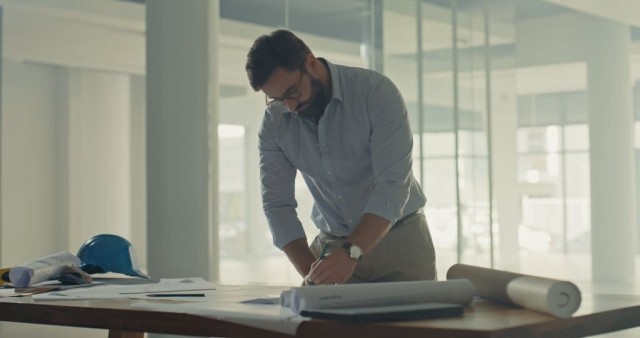
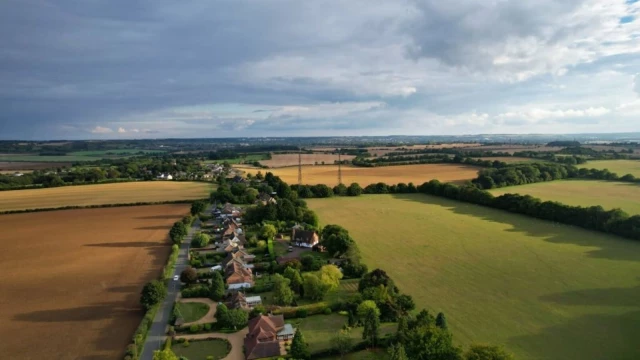

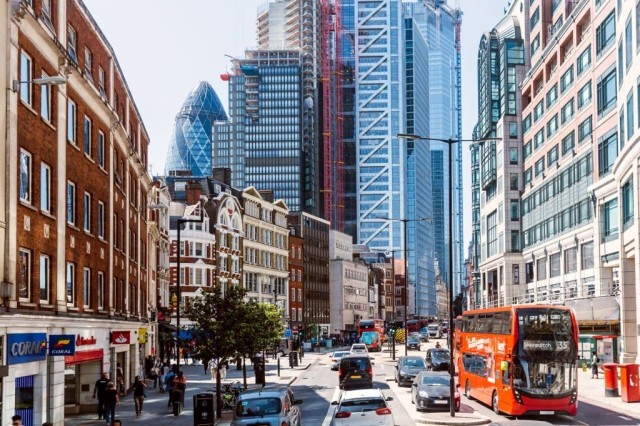
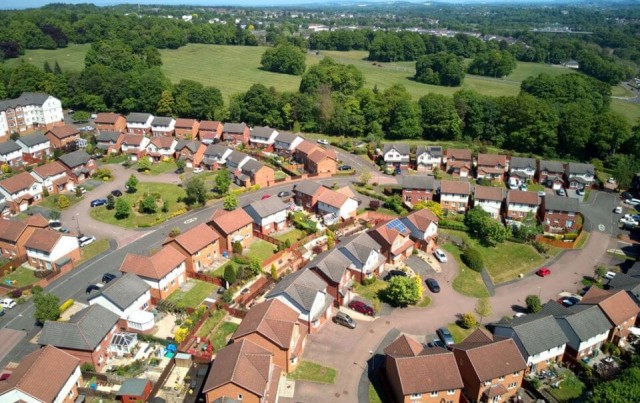
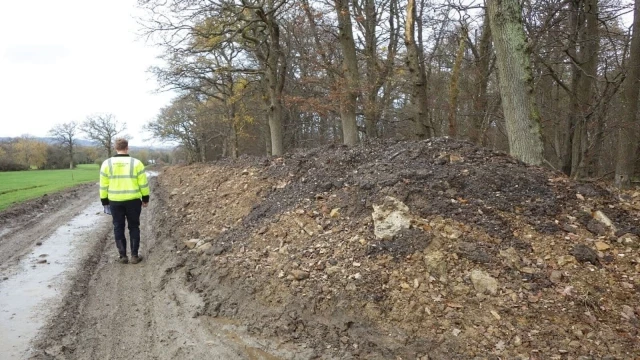
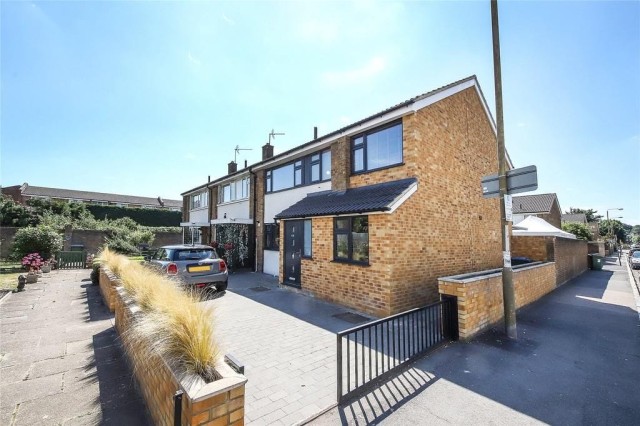
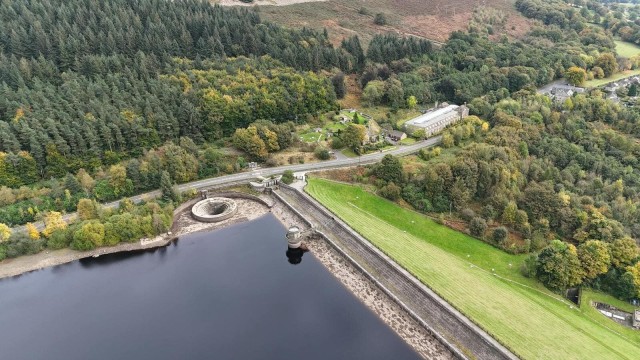
We specialise in crafting creative design and planning strategies to unlock the hidden potential of developments, secure planning permission and deliver imaginative projects on tricky sites
Write us a message